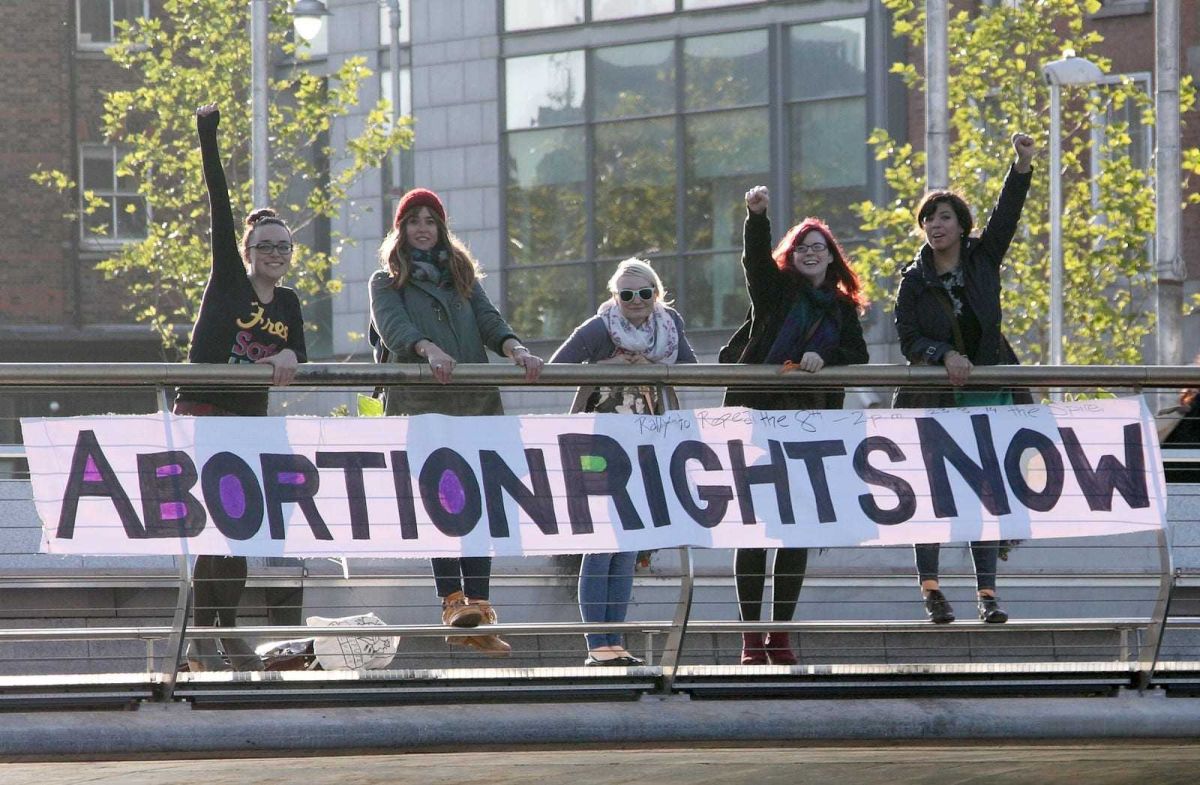Review: ‘Repeal the 8th’
By Daisy Lester

The Manchester Literature Festival hosted a discussion on the historic repeal of the Eight Amendment that happened in May last year.
Ireland had been the only democracy in the world to have a constitutional ban on abortion, and the landmark change marked a crucial shift in attitudes towards women in Ireland. The talk was led by the Irish academic Caroline Magennis, who welcomed journalist and writer Una Mullally, broadcaster, and author Sinead Gleeson; and actor, comedian, and author Tara Flynn.
The three Irish women were all published in the bestselling Repeal the 8th Anthology. Published this summer, the book features stories, essays, poetry and photography inspired by the Reproductive Rights Movement and debates surrounding it in Ireland. It is a carefully complied snapshot of a historic, creative and progressive moment in Ireland that continues to evolve in the name of women’s rights.
The evening began with Magennis’ emphasising Manchester’s heritage and interlocking history with Ireland. Between 2010 and 2015, 30% of women travelling from Ireland for an abortion came to Manchester, and much of the audience was made up of various different Manchester Reproductive rights groups members.
Mullally set the tone for the evening with a reading of her poem, The Us’s. It is a rousing piece that she wrote on the day of the Constitutional Citizens Assembly to repeal the amendment. The poem emotively narrates an Ireland united in empathy.
Sinead Gleeson read from the anthology next, reading a day-by-day short story of a doomed teenage love affair. Tara Flynn’s contribution to the book is arguably the most sentimental; her short story details an Irish woman’s journey to Britain for an abortion (Flynn herself went to the Netherlands). The particularly affecting last line read “This is awful. I am so glad I’m here”.
The women, who were all central figures and speakers in the movement in Ireland before and during the referendum, defined the cultural moment as the result of “empathy and conversation”. Flynn argued that the repeal was catalysed by people finally telling their stories, an end to “‘shunning’ and the rise of honest, nuanced conversation”, with personal, and often tragic, testimony proving to be greater than any parliamentary politics.
Mullally contested that Brexit and its aftermath was demonstrative of the deficient but very necessary role of conversation in politics. The emotional drain of the movement in Ireland was evident in the women’s respective testimonies of their campaigning; Flynn recalled how she was “balling 24 hours a day”.
They stressed the importance of the grassroots aspect of the campaign, and its intersectionality across gender and race while acknowledging the role of its precursor the Marriage Referendum. Despite the edifying nature of the repeal amendment, the women all highlighted the need for the historic event to not be rewritten merely as warm; there is also an element of sorrow in the country’s years of silence and inaction.
An audience question took the discussion to the controversial field of Northern Ireland and the continued struggle for Reproductive Rights. All three women, obviously impassioned, implored that they will not let down those fighting in Northern Ireland, stressing that progression is inevitable.
They critiqued the ‘crippling’ limbo in north of the border as a result of a lack of functioning assembly and the DUP’s impotence in Westminster. Mullally called the DUP a “Stockholm syndrome beast”, aiding Westminster in ruining the country.
In Northern Ireland, it is illegal to buy and supply abortion tablets, and Gleeson highlighted a recent story of a mother facing up to ten years in prison after buying her fifteen-year-old daughter an abortion pill online. The writers also discussed controversial American issues, from Kavanaugh’s confirmation to Trump and Roe Vs Wade. Gleeson argued that the existing extremity, and liberal regression in America is due to the lack of belief in, and inability to listen to women’s stories.
Mullally, the anthology’s editor, concluded the night claiming that she has never been more proud to be Irish. She said that the book is now an artefact and snapshot of a moment in history that Ireland and women everywhere will never forget. The book is testament to the creativity and passion of the grassroots activism, a record of the social justice and newfound body autonomy that sadly so many women were deprived of.







